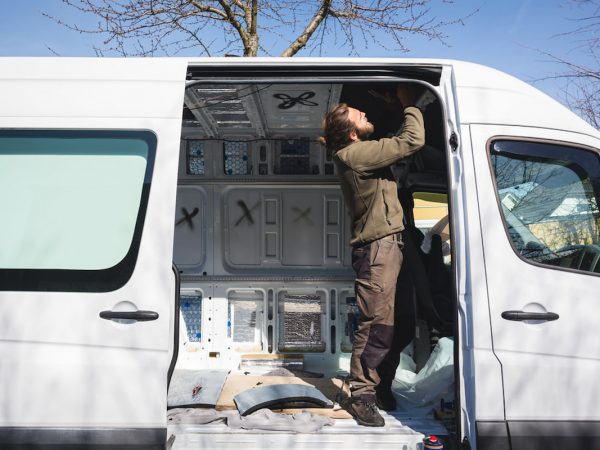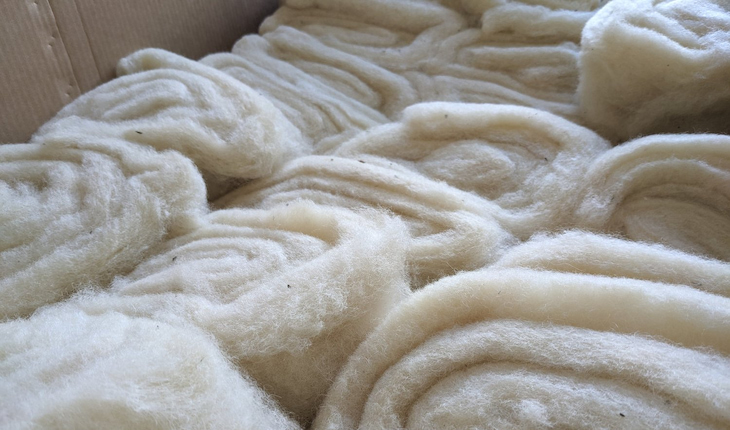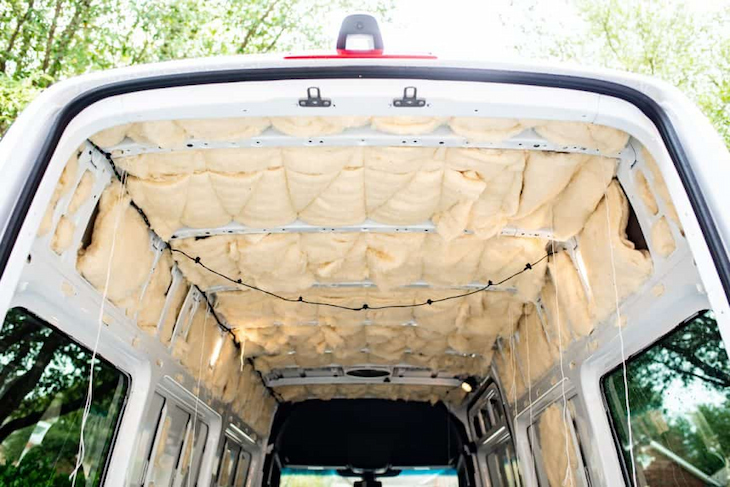23
May

Deciding to insulate the interior of a van, combi, or any other vehicle that you’re spending a lot of time in is a job that’s well worth the effort. But with a roster of insulating choices that can range from high-density/high particulate rock wool and fibreglass batts, to costly closed-cell spray foams, there’s only one material that has the best qualities of them all: 100% natural wool.
Kilo for kilo, and dollar for dollar, no other barrier material has wool’s organic ability to insulate against both hot and cold, absorb sound, and resist moisture. And the fact that natural wool is nontoxic, filters and irreversibly binds with toxic exhaust gases like SO2 and NOx, and is still 100% biodegradable, helps to establish it as the top-of-the-line, on-the-road insulator that does more than just regulate heat and noise.
Let’s be honest: it doesn’t matter if you’re living the van life full-time, or just appreciate having a cargo van that doesn’t feel like a pressure cooker during sweltering Australian summers, Havelock 100 sheep wool insulation is what you need to keep your rolling living or working area climate controlled when you’re on the road. Unlike other barrier materials, Havelock is the only 100%, all-natural wool insulator available in Australia; and make no mistake: it doesn’t take much for the benefits of an all-natural barrier to become glaringly obvious.

Even before wool’s sound deadening or thermal insulating properties are factored in, the natural process of air quality control that 100% wool insulation performs is irreplaceable. And as hard as it is to improve on a barrier material that’s already removing harmful emissions and detrimental moisture from your vehicle’s interior, that’s only the beginning of what Havelock still has to offer.
The noise reduction coefficient (NRC) of insulating materials measures how well they absorb sound, and are rated on a scale from 0.0 to 1.0, with 1.0 being the highest. It’s an important value to keep in mind because the long tinny sides, roof skins, and even the door panels and floor pans of vans and combis can amplify road and engine noise to a virtual roar when driving. Fortunately, though, this is where Havelock wool van insulation also starts to come into its own.
When used in standard batts of 410mm x 1220mm x 50mm (16” x 48” x 2”), the NRC of Havelock wool insulation is rated 0.9 under ASTM C-423 testing specifications, and is the perfect size and shape for installation along large surface areas and behind panel beams. The NRC of loosely filled Havelock wool, however, can reach as high as 0.95 when cut and used to fill behind structural ribbing, headliners, and other tight cavities.
For optimum sound abatement, especially where large areas of sheet metal are present, and where noise concentrations are inherently higher or would be most disruptive, Havelock wool batts can be used in conjunction with a premium quality rubber sound deadener, especially against roof skins and floor pans, to create a cabin that has all the best resonance-free, acoustic buffering qualities. With this layered approach, all your interior needs is thermal protection, and 100 wool insulation has that too.
While insulation has a host of measurable parameters, the most prominent of them is the resistance to heat flow: the R-value. Havelock sheep wool insulation is no different in that respect, and boasts an R-value of 3.6 per inch, and a value of 7 at its standard thickness of 50mm / 2”. This is largely consistent with the R-values of rock wool, fibreglass, and even denim batt material. Where Havelock wool holds the advantage, however, is in its cumulative value.

What’s easy to overlook is that factors such as temperature and moisture can have an adverse effect on the R-values of non-natural materials. Barrier materials that would ordinarily have similar, or even higher R-values than Havelock wool can lose their thermal advantages the moment temperatures plummet or moisture sets in. Not only doesn’t Havelock wool wall insulation lose any of its inherent qualities under adverse conditions, but it can easily be double- or triple-layered to dramatically increase its R-value.
In fact, when it comes to overall health and safety, Havelock wool also ensures you of:
Suffice it to say, when it comes to long-lasting, high-quality barrier materials, Havelock wool insulation for van and combi interiors is the perfect, all-natural choice.
At the end of the day, while there are all kinds of insulating materials available, when it comes to long last insulation that’s as safe as it is effective, there’s really only one choice. Some offer better sound deadening properties and higher, per-inch R-values, but none offer a healthier, non-toxic combination of qualities that are also 100% recyclable from start to finish.
Havelock 100 sheep wool insulation is the ideal material for making your van or combi quiet, climate-controlled, and healthy. It’s the all-natural choice for you, your passengers, and the environment, and it’s a decision that you won’t regret.